Shibani Mahtani, Joshua Irwandi
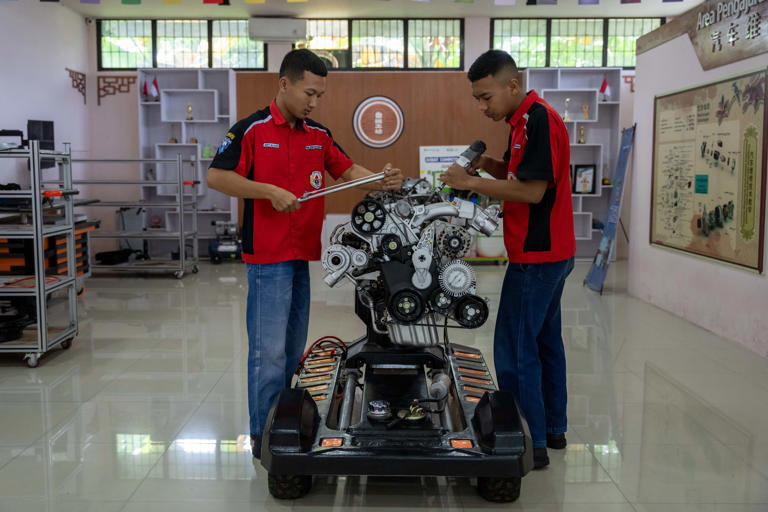
PONOROGO, Indonesia — The rice fields in this part of East Java are still plowed by buffalo. There is little in the way of manufacturing or tourism. Every year thousands of residents follow a well-worn path to jobs as domestic helpers in Hong Kong or construction workers in Saudi Arabia.
Ziofani Alfirdaus, however, believes he will have a career and a future here. The 16-year-old is clear on the source of his optimism — China.
His local school hosts a Luban Workshop, a Chinese-funded and -directed vocational training program that teaches students how to service Chinese electric-vehicle engines, operate Chinese commercial drones and assemble Chinese robots. The educational assistance, all provided at no cost, has revolutionized the provincial school here with new technology and machinery to train students, as well as trips to vocational schools in China to build the skills of Indonesian educators.
Students who have gone through the workshops emerge sold on the merits of Chinese technology and, by extension, China itself, teachers and alumni say. Alfirdaus said he didn’t know what drones were until he started studying how to operate them, and now hopes to make a career using drones to make video and other visual content. China’s technology, he said, “will be helpful to all of mankind.”
Ziofani Alfirdaus's school in Ponorogo hosts a Luban Workshop, where the 16-year-old learned about drones. China’s technology, he said, “will be helpful to all of mankind.”
There are more than 30 Luban Workshops in 25 countries around the world, largely in Asia, the Middle East and Africa, offering a host of skills training programs, from manufacturing systems using artificial intelligence to traditional Chinese medicine. Tens of thousands of young people have graduated from them. And in April, Beijing formed a special committee to help plan and construct new workshops, which are increasingly being trumpeted by China as an example of its generosity and a rebuttal of criticism that large infrastructure projects paid for with Chinese loans and constructed with Chinese labor were doing little for the development of other economies.China sends a subtle message to Central Asia: Rely on us, not Russia
When they were first introduced in 2016, the workshops were a component of China’s Belt and Road Initiative, a global network of infrastructure projects to cement China’s industrial power and economic influence. They have expanded in reach and sophistication, emblematic of Chinese President Xi Jinping’s efforts to extend his country’s soft power alongside its economic might, especially in the Global South. They showcase an accelerating effort by Beijing to wield its companies and educational institutes as an arm of diplomacy, positioning China as an alternative power and model to the United States by harnessing China’s technological prowess.
Students who have gone through the workshops emerge sold on the merits of Chinese technology and, by extension, China itself, teachers and alumni say.
There are more than 30 Luban Workshops in 25 countries around the world, largely in Asia, the Middle East and Africa, offering a host of skills training programs.
A 16-year-old workshop student sits for a haircut, which all male students must get each month. The haircuts are meant to maintain a semi-military atmosphere at the school.
They are also part of a wider shift to modulate the coercive foreign policy that emerged in Xi’s first years by striking a variety of tones in Beijing’s approach to the world and forging unexpected forms of engagement. China in many ways has begun to emulate the American approach of developing a menu of hard- and soft-power options to advance its national interests
“China’s overseas economic aim is to tie the emerging economies of the world more closely to China’s industrial system,” said Dirk van der Kley, a research fellow at the Australian National University and author of an upcoming report on the workshops. “Xi Jinping is trying to create a new world order in which the U.S. role is reduced. … In the case of Luban, which can provide genuine benefits for recipient states, the underlying goal of reshaping the world order does not go away.”
Indonesia’s working culture, said Syamhudi Arifin, the school principal in Ponorogo, tended to “lean more toward America, Japan and Europe,” especially when it came to training and operational standards. But it was China that was willing to donate its technology and underwrite instruction.
“We wanted to enhance our students’ competence,” Arifin said.
Syamhudi Arifin, the school principal in Ponorogo.
The workshops have echoes of and sometimes operate in tandem with Confucius Institute learning centers. Confucius Institutes on American and other Western campuses have closed in recent years over concerns that they were propaganda arms of the Chinese government and limited discussion on issues that Beijing considers politically sensitive, such as Tibet or Xinjiang. At their height in 2018, there were 530 Confucius Institutes in 149 countries.
With their emphasis on practical training, the workshops and other forms of vocational education sponsored by China or Chinese companies have drawn much less scrutiny than the institutes — and, ultimately, may serve China’s ideological goals more effectively through the accretion of goodwill.
Hosting leaders from Central Asian countries in May, Xi singled out for mention the recently opened Luban Worshop in Tajikistan, the first in the region, with more under construction as part of a billion-dollar Chinese assistance package. Addressing Tajik President Emomali Rahmon, Xi urged him to “run the Luban Workshop well” as part of broader efforts to deepen economic cooperation and tell “China-Tajikistan friendship stories.”
‘Small and beautiful’
The school grounds of SMK PGRI 2 Ponorogo, which hosts a Luban Workshop.
The first Luban Workshops were led by the local government in Tianjin, a coastal area just south of Beijing dominated by industries like petrochemicals, car manufacturing and metalworking and with a large network of vocational schools. A chemical supply company based in Tianjin and a vocational school in the same city sponsored the first workshop in 2016, in Ayutthaya, Thailand. Students learned to operate hydraulic systems and digital circuits used in high-skill manufacturing, using equipment that was donated by the company.
Analysts said the involvement of Tianjin authorities and regional companies was a way for local officials and businesspeople to endear themselves to the central government by showing they were committed to Xi’s Belt and Road Initiative, implemented just a few years earlier. In an official document, the Tianjin municipal government said it was building the workshops based on the needs of Belt and Road projects, opening a “new era of the Chinese model” through vocational education.
“China’s overseas economic aim is to tie the emerging economies of the world more closely to China’s industrial system.”Dirk van der Kley, a research fellow at the Australian National University and author of an upcoming report on the workshops
In May 2017, the second Luban-branded workshop opened, at Crawley College, south of London, offering a one-year diploma in Chinese culinary arts. It was sponsored by another Tianjin-based company, the Tianjin Food Group. Chefs from the city flew in to teach students how to make Chinese pastries and kung pao chicken. The program ended in 2020, but Crawley College was “proud to be involved in the pilot,” a statement from the college said.
The Luban Workshop in Ponorogo was the third to open, in late 2017, facilitated partly by a Chinese-born business executive, Jasper Ho, who had ties to both Tianjin and Indonesia. The Ponorogo school focused on automotive manufacturing skills, drone technology, robotics and IT. A Tianjin-based company that provides IT services and tech products, Qicheng Technology, helped train Indonesian teachers and provided technological support. The workshops, Ho said, represented a business opportunity for the Tianjin companies. If more people were trained on their systems and technologies, they could grow a bigger market share in those countries.
Students attend a class at the SMK PGRI 2 Ponorogo.
Shoes outside a computer network engineering classroom.
The workshop area of a Luban Workshop in Ponorogo.
The Luban Workshops — named after Lu Ban, a 5th-century master carpenter and inventor revered in Chinese legends — then started to appear in Chinese Communist Party speeches and bilateral meetings between China and other countries. With Beijing now promoting the initiative, the Luban Workshops expanded into Phnom Penh, Cambodia, and Lahore, Pakistan. A workshop opened in Portugal, one of China’s closest partners in the European Union, focusing on electrical automation and industrial robots. The president of the Tianjin Vocational College of Mechanics and Electricity, which co-founded the Portugal workshop, said the export of Chinese technology to a “developed country” was testament to China’s advancements. Xi announced the building of 10 workshops across Africa at a diplomatic summit on China-Africa cooperation in October 2018, and they subsequently opened in Kenya, Djibouti, Mali, Ivory Coast and Ethiopia. Several on the continent offer university-level certificates that incorporate Mandarin language training.
The Chinese consul general in South Africa, opening a Luban Workshop at the Durban University of Technology, said the program was a goodwill present to the country, and, quoting Xi, said it should “set a good example for China and South Africa cooperation projects.” A piece in the state-run China Daily on a workshop in Mali specializing in Chinese medicine compared it to the work of 14th-century Chinese explorer and mariner Zheng He, who, “instead of seizing a colony or establishing a military base” on visits to Asia and Africa, “made gifts of China’s then-advanced achievements and civilized artifacts.”
It was not all pure benevolence. Chinese partners decide what each workshop specializes in, and some are tailored to Belt and Road and other major Chinese projects. The goal is to have local workers staff these projects and work for Chinese companies, reducing the reliance on imported Chinese workers. In Djibouti, the workshop trains people to operate the Chinese-financed electric railway to Addis Ababa, Ethiopia, and in Uganda, the Luban Workshop was set up with a practical training school at the Chinese-run Sino-Uganda Mbale Industrial Park.
“It is a really smart way of both addressing a long-standing criticism around the use of Chinese labor and also finding a way to subtly ensure that there’s a future orientation in these countries toward adopting Chinese technologies,” said Steven Feldstein, a senior fellow in the Democracy, Conflict, and Governance Program at the Carnegie Endowment for International Peace.
“We are learning examples of Chinese innovation, and understanding how to apply it to big projects.”Tsegaye Alamu, an Ethiopian doctoral student in Tianjin
Criticized for leaving developing nations indebted to China, Beijing has since the pandemic downscaled its Belt and Road program and had to offer rescue packages to countries that took out infrastructure loans. More than $78 billion in loans to foreign infrastructure projects had to be renegotiated or written off between 2020 and the end of March, according to data from the Rhodium Group research institute. Nine countries, including Ghana, Sri Lanka and Lebanon, have defaulted on their debts since 2020. Though Chinese banks are now more wary of financing the Belt and Road Initiative, the two other drivers of the program — Chinese industry and the Chinese state — still want to push on, said Rebecca Ray, senior academic researcher at Boston University’s Global Development Policy Center.
“The shift is to keep being active more overseas but in a more targeted way, because the money isn’t flowing anymore,” she said. The Luban Workshops, Ray said, continue to make sense under Xi’s new Belt and Road mantra of “small and beautiful” projects.
The workshops in Africa have been billed as a key component of Sino-African cooperation, part of a broader effort to engage the region economically in exchange for diplomatic support at forums such as the United Nations and on China’s Taiwan policy.
In April, Teshale Berecha Yadessa, the Ethiopian state minister for technical and vocational affairs, visited Tianjin, where officials announced the expansion of the Luban Workshop in Addis Ababa, established in 2021, with a focus on robotics and manufacturing that incorporates artificial intelligence.
Winning friends by training workers is China’s new gambit
Winning friends by training workers is China’s new gambit
Winning friends by training workers is China’s new gambit
Winning friends by training workers is China’s new gambit
The Ethiopian workshop also trains faculty to teach at workshops across East Africa and illustrates China’s comprehensive approach to training and education overseas. The workshop there is part of the government-run Technical and Vocational Education and Training Institute (TVET), which also hosts a Confucius Institute. The Confucius Institute cooperates closely with government agencies, providing courses including a Chinese language and culture class for employees of the Ministry of Labor and Skills. In April, Huawei, the Chinese tech company that has been linked to China’s surveillance programs and is the target of a U.S. effort to limit its global expansion, launched a program at the TVET Institute providing technical training specific to Huawei’s technology and products.
Tsegaye Alamu, an Ethiopian doctoral student in Tianjin who helped set up the Luban Workshop in Addis Ababa as a trainer, said China has helped “change the attitude” of students in line with the “Luban spirit,” which to him encapsulates the virtues of passion and hard work.
“We are learning examples of Chinese innovation, and understanding how to apply it to big projects,” he said.
Seeking to ‘wash sins’
A mechanical depot at the Indonesian Railway Polytechnic in East Java province.
After a lull during the pandemic, when training moved online, there is fresh impetus to take workshops and other Chinese training programs to a wider array of schools and industries across the Global South, including further expansion in Indonesia. In Ponorogo, some 3,600 students have gone through the Luban program, now a mandatory part of the curriculum in vocational education. About 72 percent found jobs after graduating, many in construction.
Ho, the Chinese business executive who aided the opening of the first Luban Workshop in Indonesia, said he had two meetings in just a week in April with school principals who now needed no introduction to the program.
“A lot of cities are trying to establish something similar,” he said.
Some of the training that the workshops have modeled is expanding into sectors such as mining, historically plagued by clashes between Chinese and local Indonesian workers and a major contributor to a host of environmental issues from deforestation to flooding.
In January, an Indonesian worker and a Chinese worker died in a clash involving workers from the two countries at a nickel smelter in Sulawesi, a sector China has tapped amid a growing global demand for electric-vehicle batteries. Two months later in March, three Chinese workers died in a coal-mining tunnel in South Kalimantan. Complaints of mistreatment and poor labor conditions at Chinese-led projects have come from both local Indonesian and Chinese workers.
“They are both victims,” said Yeremia Lalisang, an assistant professor at the University of Indonesia who studies topics including perceptions of China in Indonesia. China “simply wants to wash sins. We’re talking about huge damage that has been created by unsupervised Chinese economic engagement in Indonesia.”
Chinese companies appear to be increasingly aware of the need to address such criticism. A Chinese heavy-machinery company, LiuGong, posted a YouTube video in March promoting a training initiative that showed Chinese supervisors teaching Indonesians how to operate specialized trucks at a mine site.To meet EV demand, industry turns to technology long deemed hazardous
Staff of the Jakarta-Bandung High-Speed Rail project sit at the Indonesian Railway Polytechnic in Madiun.
China, working with the polytechnic, is training local workers to operate the Jakarta-Bandung High-Speed Railway, a signature project of the Belt and Road Initiative.
An instructor at the polytechnic translates Chinese to Indonesian.
China is also training a group of Indonesian workers to operate the Jakarta-Bandung High-Speed Railway, a signature project of the Belt and Road Initiative, though it has been plagued by cost overruns, delays and safety issues. On a weekday morning, a few dozen employees of the state railway operator sat in a stuffy classroom, learning the technicalities of the high-speed rail system and how it differs from the diesel one they’ve worked on so far. They came from all over the country, brought to the railway polytechnic in the East Javan town of Madiun to be a part of a new, signature project of the Indonesian and Chinese governments. If they pass, they will be the first Indonesian workers to staff the new railway.
But some found the teaching hard to follow. The Indonesian workers were learning everything online from a lecturer speaking Mandarin over a computer screen and with slides entirely in Mandarin. An interpreter in the classroom translated between Indonesian and Mandarin.
“It is sometimes hard to understand the technical terms,” said a student training to be part of the railway’s operational control center. He spoke on the condition of anonymity because the rail operator, Kereta Cepat Indonesia China, did not authorize staff or students to speak to The Washington Post. “I just wish there was a lecturer present in the class.” The rail operator did not respond to questions from The Post.
Despite the difficulties, he too believes that China has elevated Indonesia’s development and his own career.
“I’m proud to be a part of this,” he said.
Faith diplomacy
Ponorogo students fill in their prayer attendance sheets.
The training programs and investment in vocational education appear to be helping boost public perceptions on China among those who have attended them. More than a dozen teachers, students and alumni of the Luban Workshops interviewed by The Post in Indonesia, Ethiopia and South Africa were strikingly grateful to China and dismissive of criticism of Beijing’s handling of the coronavirus pandemic and its treatment of minorities, particularly Uyghur Muslims.
This bucks broader trends in Indonesia, where there has been a decline in positive perceptions of China in the Muslim-majority country. A poll by the Australian Lowy Institute in 2021 found that 6 in 10 Indonesians either agreed or strongly agreed that their country should join with other countries to “limit China’s influence.”
Analysts said concern about China among Indonesians was driven in part by the treatment of Uyghurs in Xinjiang — who have been arbitrarily detained, sent to mass reeducation camps and forced to denounce their religion — as well as perceptions that Chinese workers are taking Indonesian jobs. Yet, Indonesia, according to a 2022 paper by van der Kley at ANU and co-authors Gatra Priyandita and Benjamin Herscovitch, works with Huawei as a key cybersecurity partner and has expressed little to no concern about its involvement in sensitive infrastructure, 5G networks or potential surveillance.
The success of Huawei, the authors argue, is partly due to training programs similar to the one launched at the TVET Institute in Ethiopia. Huawei’s training program is in more than 33 colleges and universities across Indonesia. The company has trained some 7,000 Indonesian government employees since 2019, and in 2020 pledged to train 100,000 Indonesians on technology including cloud computing and 5G, according to the company.
Participants in the Chinese program in Ponorogo are also bucking the broader trends, grateful for the economic opportunities offered by China and convinced, based on their visits to China or limited exposure to alternative information, that Muslims are treated well in China.‘Boiling us like frogs’: China’s clampdown on Muslims creeps into the heartland, finds new targets
Students and teachers from Ponorogo who visited Tianjin were taken to the Great Mosque by their hosts, who also facilitated their need for halal food. Irfan Priyono, a teacher who spent 40 days training in automotive engineering, robotics and drones in China, said he wore his Muslim skullcap and traveled to the mosque every Friday as he would in Indonesia.
“I think they respect Muslims,” Priyono said.
Ponorogo software engineering students Ardyna Anggraeni and Mita Tri Anggraini, both 16.
When asked about the Uyghurs, Agus Pariadi, who helped establish ties between the Ponorogo school and its partner school in Tianjin, said, “We don’t know about that kind of persecution. … All we know is they welcomed us, and let us pray according to our beliefs.”
The Luban Workshop, said Muhammad Zulfikar Rakhmat, a researcher at the Jakarta-based Center of Economics and Law Studies, is part of Beijing’s broader efforts to build goodwill, especially among Muslim communities in Indonesia. Those efforts include partnerships with Islamic educational institutes — including by establishing Confucius Institutes — and other Muslim organizations as a form of “faith diplomacy.”
Similar efforts are underway in other Muslim-majority countries. A new batch of Luban Workshops are opening across Central Asia, following the one in Tajikistan, which launched in December, focusing on geothermal energy and the transport of natural gas. The new workshops will be in Kyrgyzstan, Uzbekistan, Turkmenistan and Kazakhstan.
Rakhmat documented in a research paper how China has also offered scholarships to students pursuing Islamic studies, some of whom have returned from China and published articles disputing the persecution of Uyghurs. Overwhelmingly, he said, partnerships between Indonesian universities and educational institutes that involve sending students to China have led to the students’ adopting China’s positions on key issues.
“It is part of China’s efforts to present a good image of itself,” Rakhmat said. “And it works.”
Kya Kya, a Chinatown in Surabaya, East Java province.
Adi Renaldi in Jakarta and Vic Chiang in Taipei, Taiwan, contributed to this report.
About this story
Story by Shibani Mahtani. Photos by Joshua Irwandi. Story editing by Peter Finn. Project management by Courtney Kan. Photo editing by Olivier Laurent. Design and development by Kat Rudell-Brooks and Yutao Chen. Design editing by Joe Moore. Research by Cate Brown. Map by Cate Brown and Samuel Granados. Copy editing by Susan Doyle and Martha Murdock.
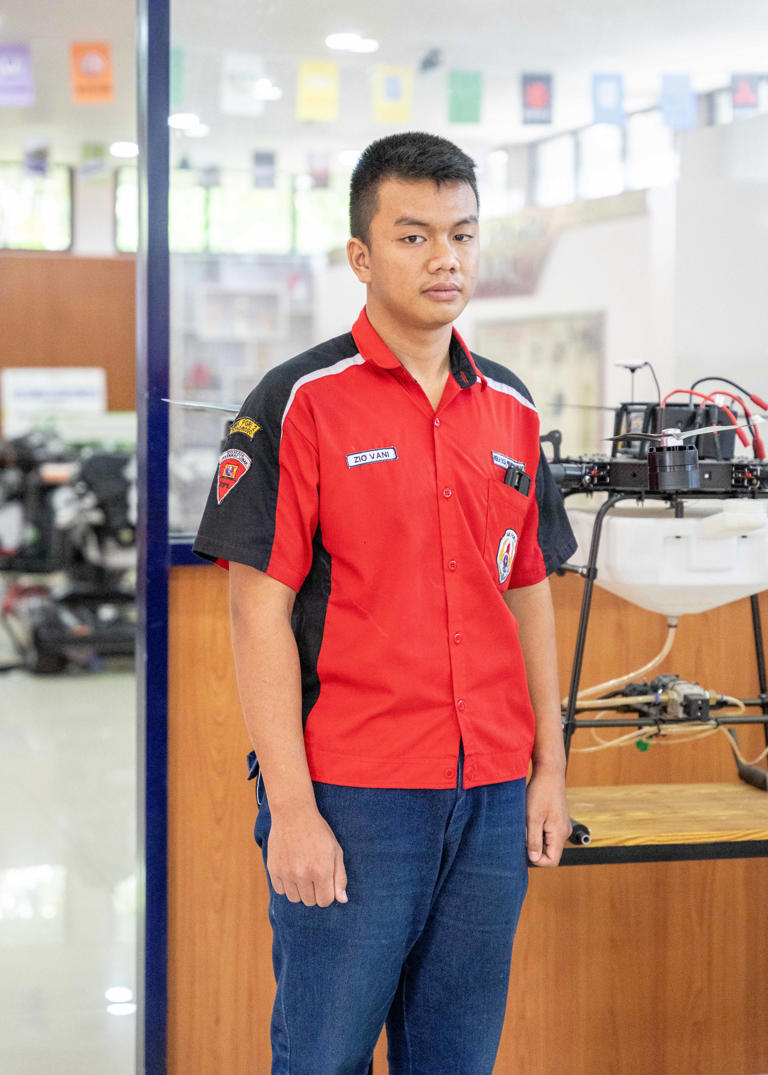
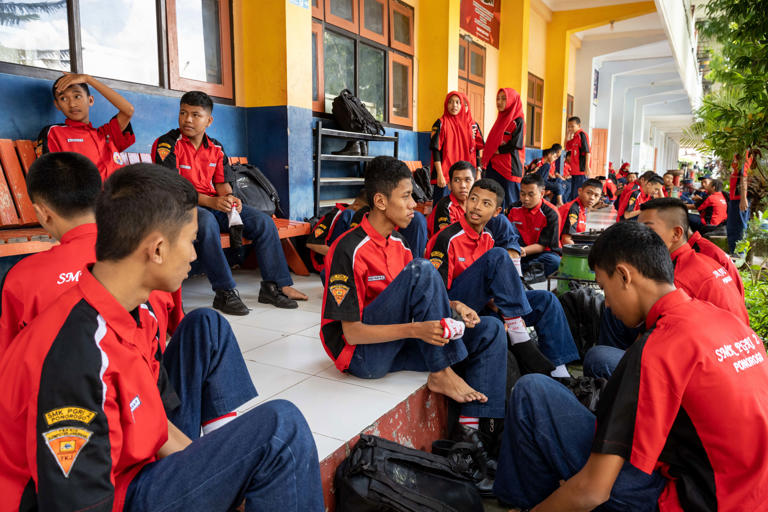
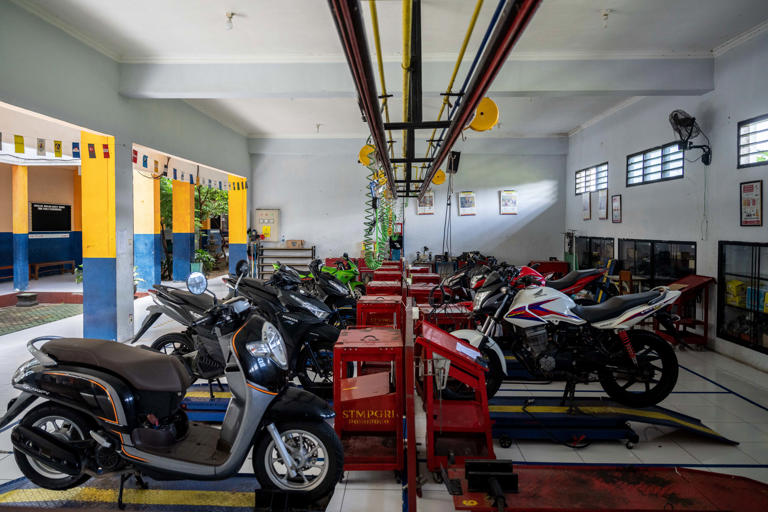
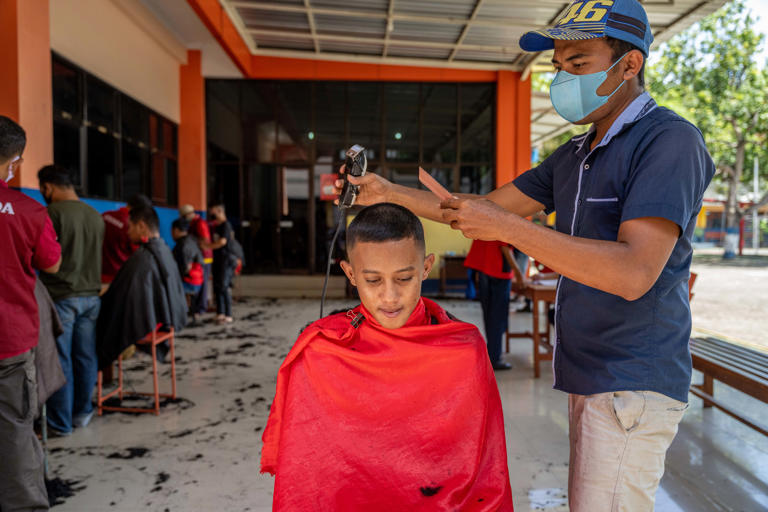
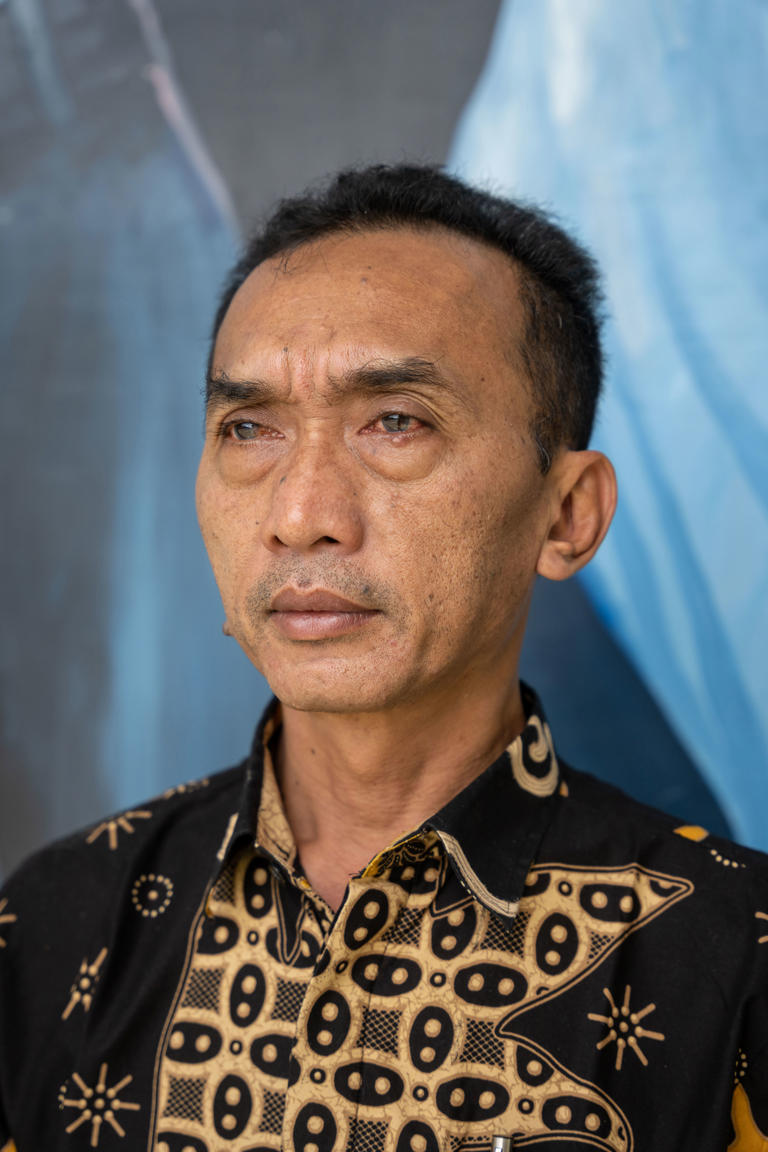
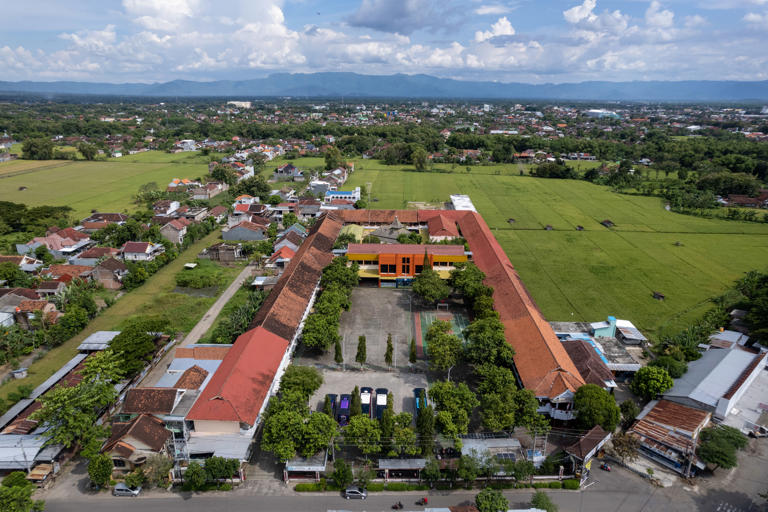
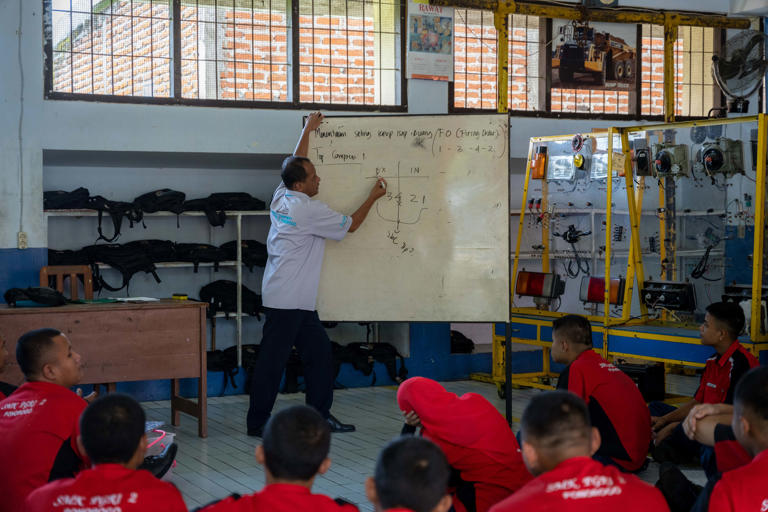
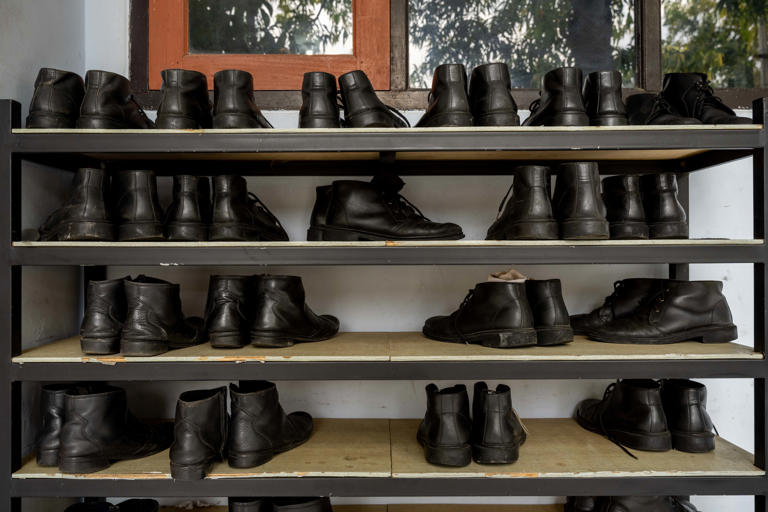
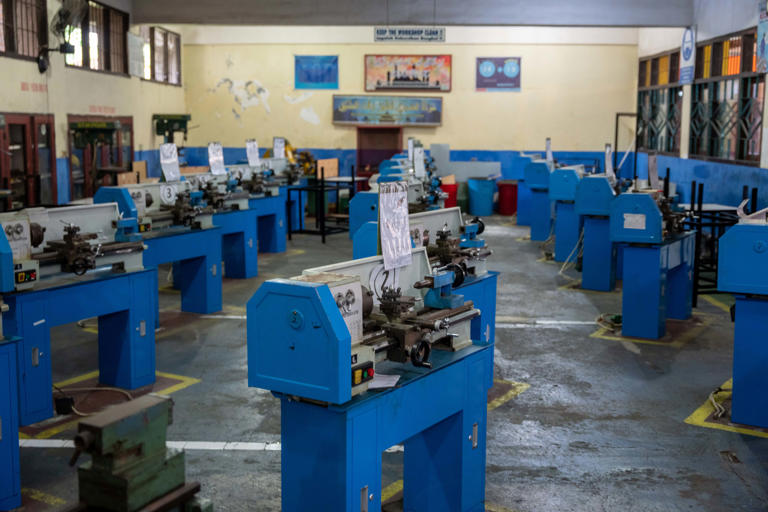



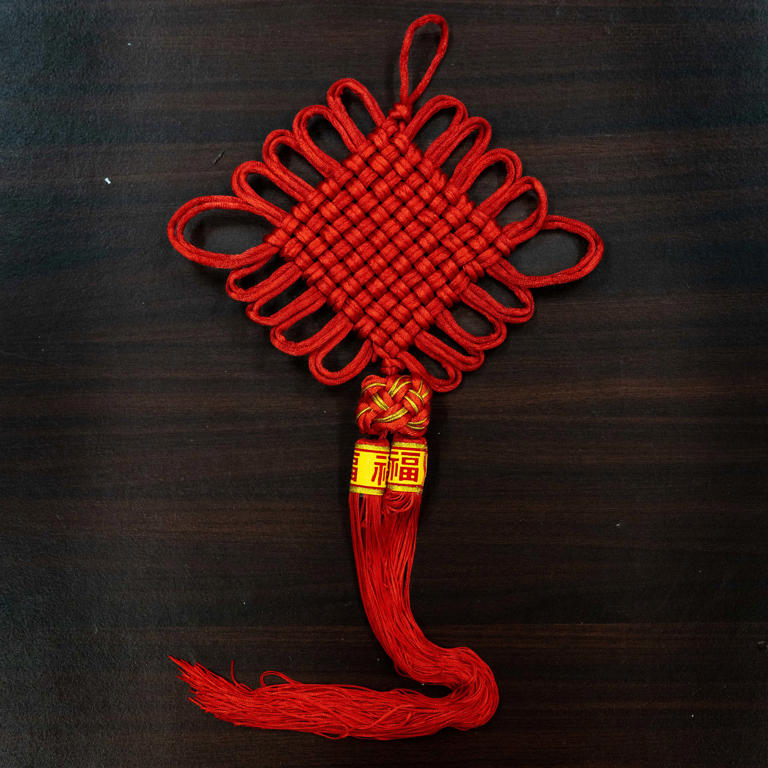
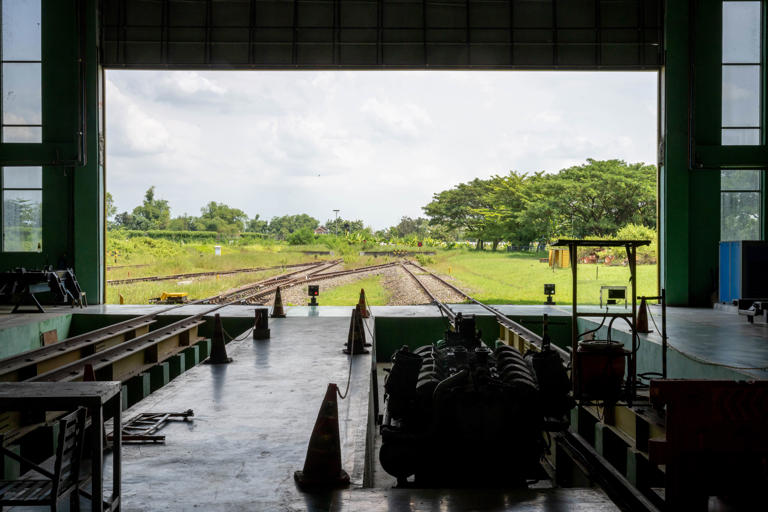
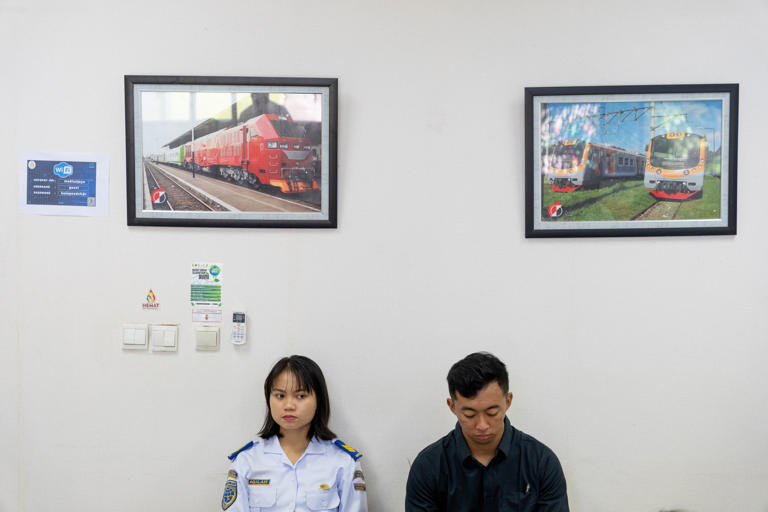
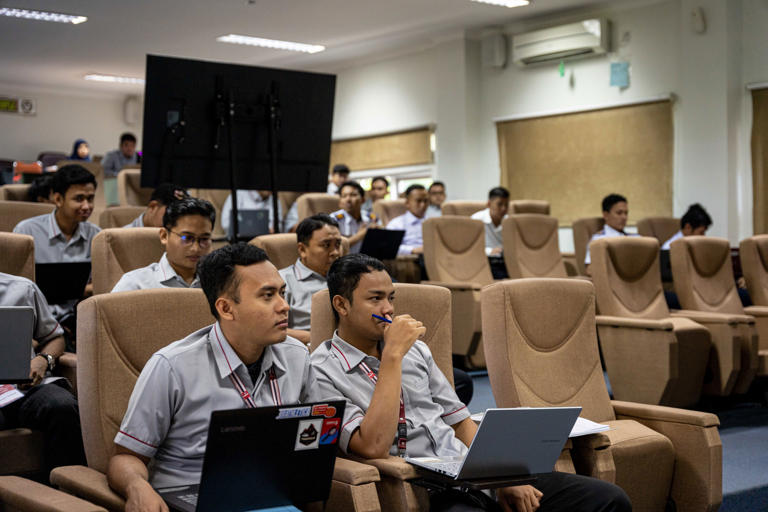
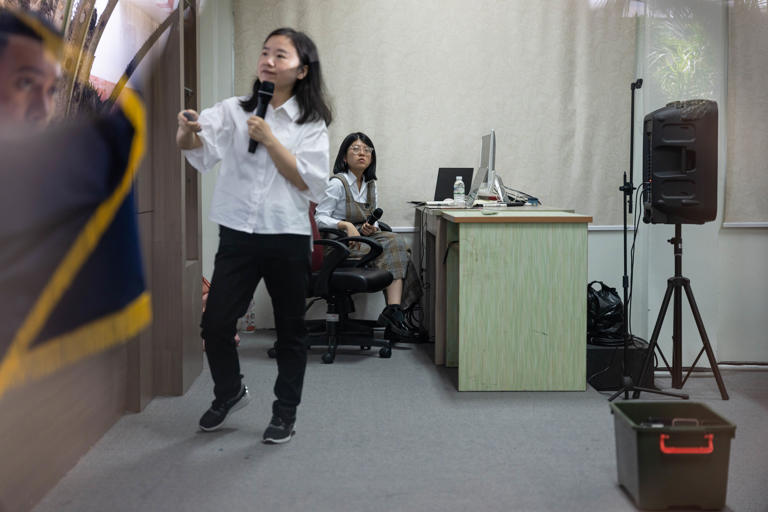
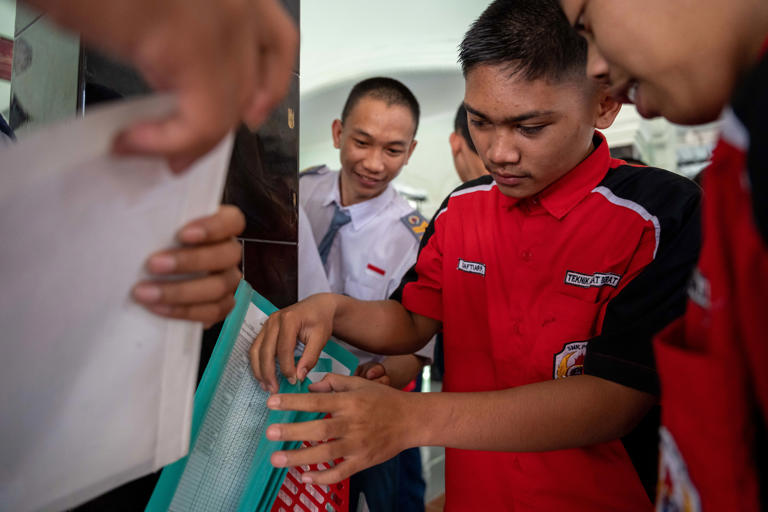
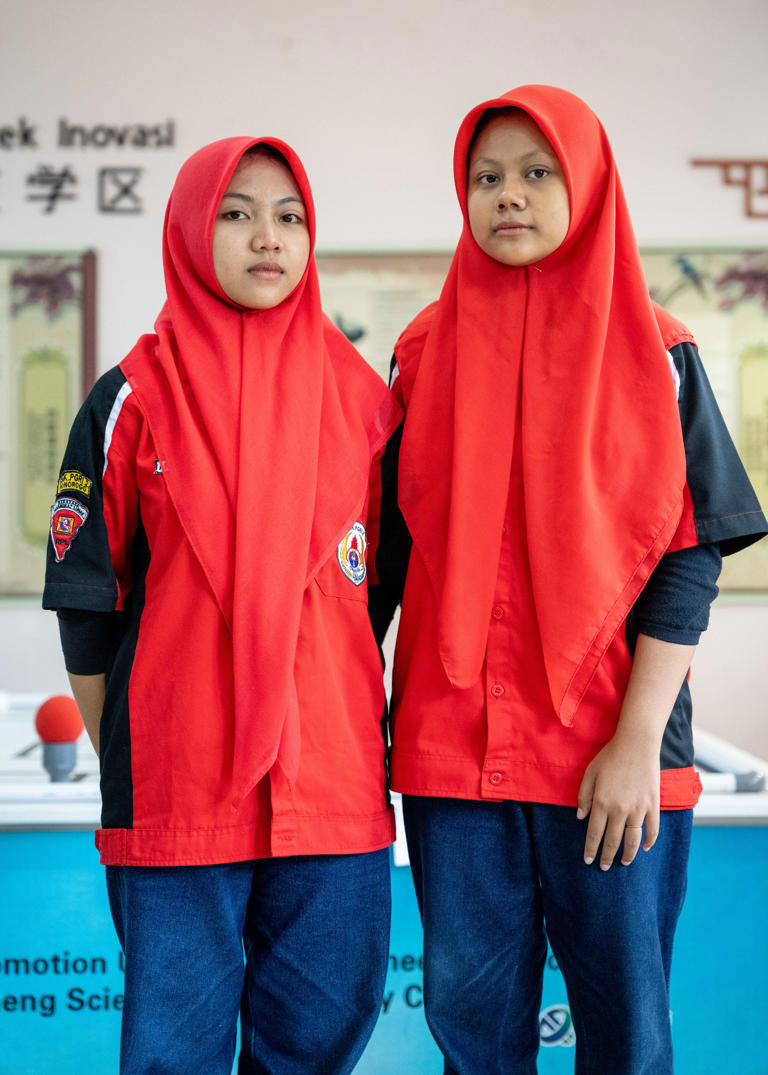

No comments:
Post a Comment